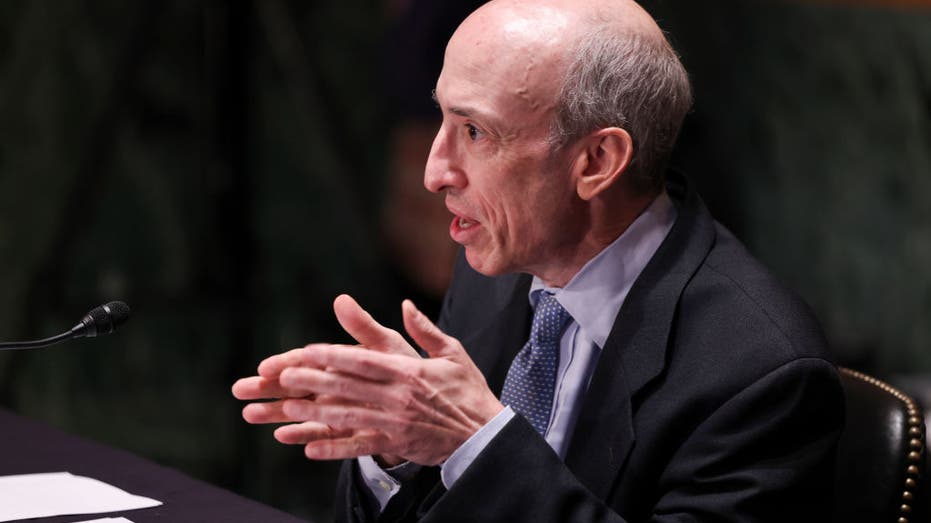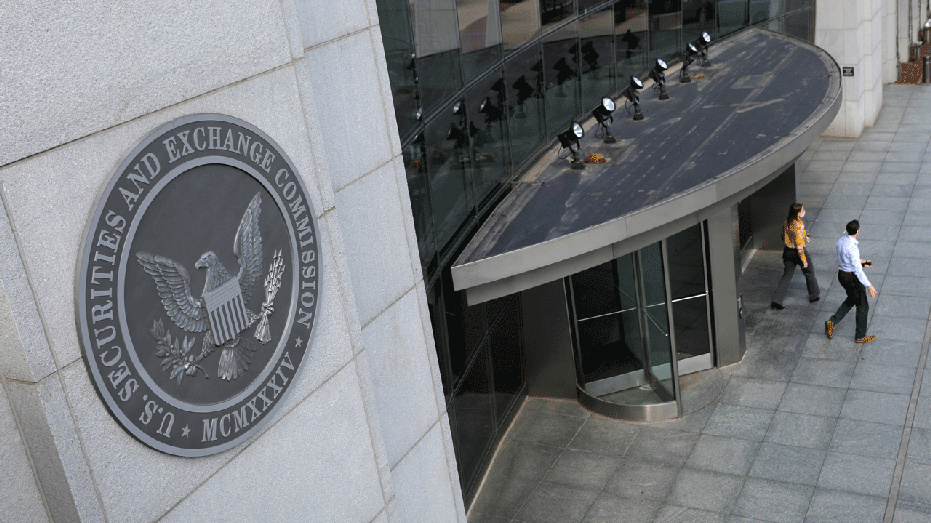SEC's reckless climate proposal will be disastrous for economy and investors
Steve Forbes: Far-left still ‘calling the tune’
Forbes Media Chairman Steve Forbes on GOP lawmakers’ stance on abortion, Biden’s credibility and the state of the U.S. economy.
While the U.S. Supreme Court's recent decision on Roe v. Wade has garnered massive media and public attention, another recent action by the court could have significant positive impact for the future of the American economy.
The court recently ruled that the Environment Protection Agency lacks the legal authority to regulate greenhouse gases outside its congressional mandate.
Regulatory overreach has become chronic and highly damaging. These agencies have imposed costly rules based on the flimsiest of pretext but have the force of law. Now these commissions must first have explicit authority from Congress before making a major move. In this instance, the EPA was shutting down electricity generating plants that relied on fossil fuels.

AG Patrick Morrisey leads effort to challenge the EPA’s authority
West Virginia Attorney General Patrick Morrisey says state representatives deserve a ‘seat at the table’ in deciding climate policy.
West Virginia Attorney General Patrick Morrisey – who spearheaded the legal challenge – applauded the ruling. But Morrisey has beefs with other federal agencies and their mission creep to advance a damaging climate agenda. That’s why he is leading the fight against a brazen, power-grabbing effort by the Securities and Exchange Commission (SEC) to force companies to calculate their own greenhouse gas emissions and – get this – those of their suppliers and vendors.
BUSINESSES BATTLING OUT-OF-CONTROL FTC AND WRATH OF COMMISSION HEAD KHAN
Morrisey and leaders from 23 other states have authored a comment letter arguing that the SEC rule is not only overly burdensome, but casts the SEC into the utterly inappropriate role of climate regulator.
To be clear, SEC Chairman Gary Gensler has serious ambitions, for bigger things – the White House someday? – meaning he’d like nothing more than to make his mark in the climate change fight, a central focus of the Biden administration and the voting left. The problem? Gensler’s proposed rule would impose huge burdens of time and money on American businesses, particularly smaller ones, endangering our return from the current malaise.
SEC Chair Gary Gensler testifies before a Senate Banking, Housing, and Urban Affairs Committee oversight hearing on Sept. 14, 2021, in Washington, D.C. (Evelyn Hockstein-Pool/Getty Images / Getty Images) At an astounding 500 pages – yes, 500 pages – the proposed SEC rule, called Enhancement and Standardization of Climate-Related Disclosures for Investors, would levy a number of new mandates on publicly-traded businesses. If passed, the rule would require disclosure of detailed information on all things climate-related. This would include details and analysis of greenhouse gas emissions, environmental risks, and what each company is doing to combat climate change and how often they are discussing it. This also includes emissions information about companies who serve as suppliers and vendors. Former Securities and Exchange Commission Chairman Harvey Pitt argues courts are likely to undo what the SEC is proposing. For most businesses, calculating emissions is no easy task. The SEC itself admits the proposed rule will increase the overall cost of disclosure and compliance for companies by up to $10.2 billion per year. This would exceed the costs for all other SEC rules combined, no doubt compelling some companies to simply go private rather than endure the cost and complication of compliance. The rule also requires companies to evaluate the risks to facilities of locating in climate-exposed areas, a definition that conceivably would make vast parts of the U.S. seemly unsuitable for new investment. In a year when "U.S. household wealth has fallen by $5 trillion to $8 trillion," a new threat to investment and jobs is the last thing we need. Plus, how does the new rule possibly benefit investors, which is why lawmakers created the SEC in the first place? Sources tell FOX Business’ Charlie Gasparino there’s possible change in control of Congress pushing Gensler’s time table to pass more woke disclosures. GET FOX BUSINESS ON THE GO BY CLICKING HERE It bears stating that the SEC does not quantify any supposed benefits for the investing public. If the SEC really wanted to better educate and protect investors, it would not make much sense to saddle those same investors with reports full of new indirect, immaterial data that has little or nothing to do with a company’s future economic prospects. Those realities are why a group of former SEC officials, including former SEC chairmen Richard Breeden and Harvey Pitt and former SEC commissioners Paul Atkins, Philip Lochner and Richard Roberts, have all agreed that the proposed rule will dilute company records with politics. The headquarters of the U.S. Securities and Exchange Commission in Washington, D.C., May 12, 2021. (Reuters/Andrew Kelly/File Photo / Reuters) They expressed those concerns in a comment letter in June that argued the SEC’s proposed rule would provide "financially immaterial information" to investors . It will "fail in many cases to provide investors any basis for a reasonable prediction about expenses that companies will face from future statutory, regulatory and public opinion changes." CLICK HERE TO READ MORE ON FOX BUSINESS In addition, these former SEC officials argue that the SEC lacks the kind of rulemaking powers it seeks to wield by becoming a de facto environmental regulator. The SEC’s proposal is a reckless. It does nothing to help investors. Junk it! CLICK HERE TO READ MORE BY STEVE FORBES Source: Read Full Article
Gary Gensler’s policies headed towards ‘dangerous trajectory’: Former SEC chairman

SEC Chair Gary Gensler setting out ‘transformational’ agenda as Wall Street’s top cop: Sources


